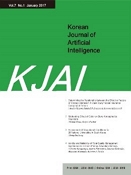 E-ISSN : 2508-7894
E-ISSN : 2508-7894
Jeong Hyon CHOI
Min Soo KANG
Abstract
In this study, we explored the potential of integrating interactive AI callbot technology into the medical consultation domain as part of a broader service development initiative. Aimed at enhancing patient satisfaction, the AI callbot was designed to efficiently address queries from hospitals' primary users, especially the elderly and those using phone services. By incorporating an AI-driven callbot into the hospital's customer service center, routine tasks such as appointment modifications and cancellations were efficiently managed by the AI Callbot Agent. On the other hand, tasks requiring more detailed attention or specialization were addressed by Human Agents, ensuring a balanced and collaborative approach. The deep learning model for voice recognition for this study was based on the Transformer model and fine-tuned to fit the medical field using a pre-trained model. Existing recording files were converted into learning data to perform SSL(self-supervised learning) Model was implemented. The ANN (Artificial neural network) neural network model was used to analyze voice signals and interpret them as text, and after actual application, the intent was enriched through reinforcement learning to continuously improve accuracy. In the case of TTS(Text To Speech), the Transformer model was applied to Text Analysis, Acoustic model, and Vocoder, and Google's Natural Language API was applied to recognize intent. As the research progresses, there are challenges to solve, such as interconnection issues between various EMR providers, problems with doctor's time slots, problems with two or more hospital appointments, and problems with patient use. However, there are specialized problems that are easy to make reservations. Implementation of the callbot service in hospitals appears to be applicable immediately.
- keywords
- Shared bikes, Demand forecasts, Linear regression, Machine learning, AI
- Downloaded
- Viewed
- 0KCI Citations
- 0WOS Citations













